Affiliate links on Android Authority may earn us a commission. Learn more.
The best private search engines
Published onAugust 2, 2021

Search engines know so much about us. From medical worries to hobbies and obscure questions we think of at midnight, we trust them with a lot of information. However, this trust shouldn’t be blind. Data is big business nowadays, and many popular engines aren’t shy about selling everything to advertisers. Using private search engines is, therefore, a must. If you are not sure where to start, we are here to help. These are the best private search engines you should consider switching to today.
Don’t miss: What is encryption? Everything you need to know
What makes a search engine private?
Before we get into the list, there are a couple of things you should take note of. All private search engines have two key components in common: little or no personal data collection and a transparent privacy policy. If you want to be very thorough in your vetting process, however, you should always read the full privacy policy of any prospective engine. Different users have different privacy standards, and might not feel comfortable with things others are fine with. You may also want to check the ownership of the engine and its source of revenue for conflicts of interest. Non-profit organizations are usually the most trustworthy in this regard. Finally, if privacy is of utmost priority, it’s not a bad idea to check in what state or country the search engine company is based. Privacy protections under the law vary by location.
You should also know that using a private search engine is only a small part of the online privacy equation. If you truly want to up your protection, you should consider using a privacy-focused browser that blocks all third-party cookies, adding extensions like HTTPS everywhere, and most importantly, using a VPN. To learn more about virtual private networks, check out the link below.
Learn more: What is a VPN, and why do you need one?
The best private search engines
1. StartPage
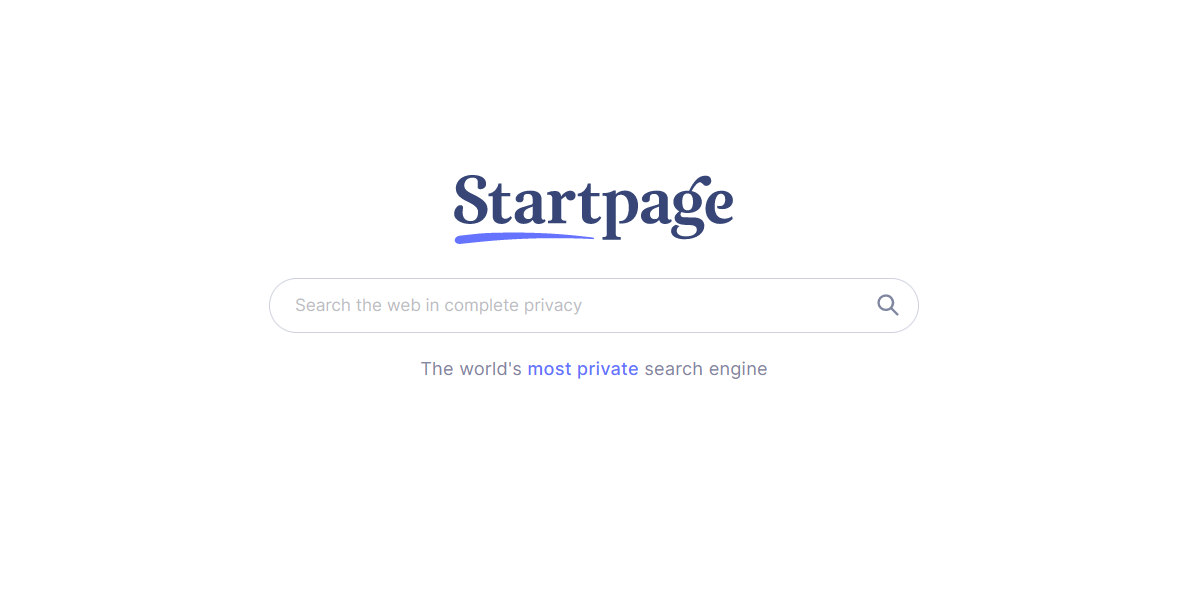
If you want to protect your privacy and get reliable and accurate search results, look no further than Startpage. This Dutch search engine allows you to obtain Google search results without any of the drawbacks. It does not store any personal information, IP addresses are not recorded, and it doesn’t serve any tracking or identifying cookies. Search queries are off-limits too. They are anonymized when sent to Google, but Startpage itself doesn’t log them at all. Additionally, you are protected from tracking when clicking on results, thanks to the Anonymous View feature.
Related: The best VPN services
The only things Startpage does measure are traffic statistics that are not tied to individual users. So, how does the platform make money? It serves ads and sponsored links, but those are not personalized or targeted. It is one of the best private search engines you can use.
Read StartPage’s full privacy policy here.
2. DuckDuckGo
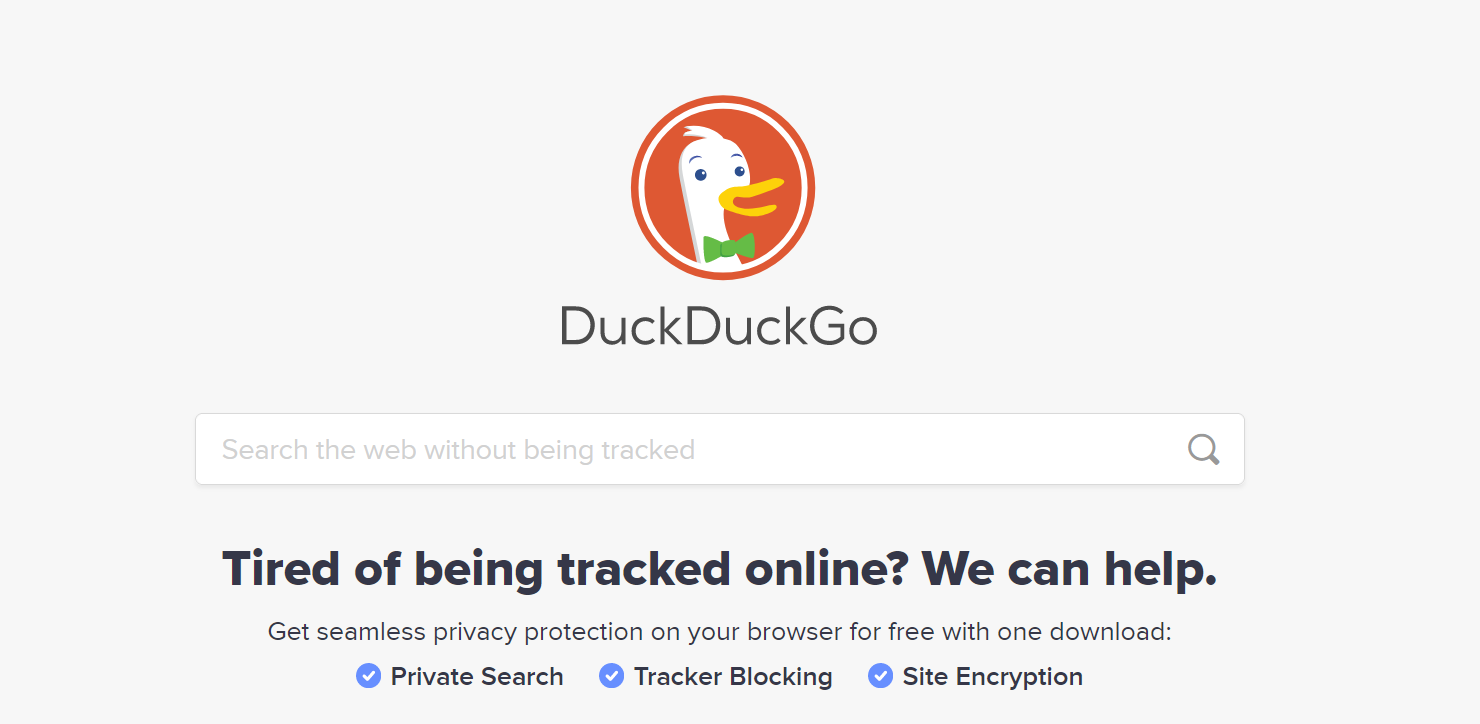
Probably the most popular search engine on this list, DuckDuckGo receives around 14 million queries every day. It is a powerful aggregate engine that collects results from various sources. However, it is most well-known for its privacy features, and for good reason. DuckDuckGo prides itself on not collecting or sharing any personal user information. Like Startpage, it prevents “search leakage,” rerouting your queries without sending data to the website you click on. It doesn’t use cookies either, but it stores searches in a “not personally identifiable way.” Whether that’s something you are comfortable with is up to you.
In terms of revenue generation, DuckDuckGo serves ads, but they are once again not targeted. Instead of getting results based on your browsing habits, you get ads for things you are searching for. Additionally, DuckDuckGo earns an affiliate commission from some e-commerce websites like Amazon and eBay. It claims it does not share any of your information in the process.
Want to know more? Read DuckDuckGo’s full privacy policy here.
3. MetaGer
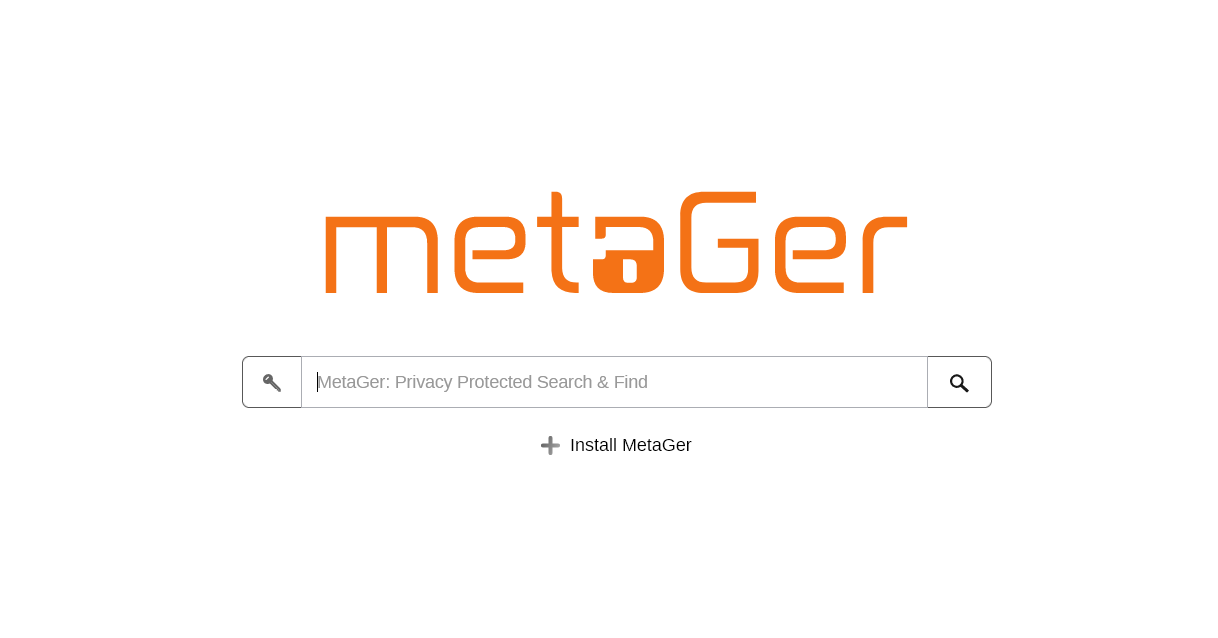
As its name implies, this German platform is a private metasearch engine. It works similarly to StartPage and DuckDuckGo, sending your queries to multiple search engines anonymously and retrieving results. What makes it stand out from the crowd is the integrated proxy server it offers. It conceals your IP address, making it more secure than many other offerings. Additionally, you can open result links anonymously, which means you can’t be tracked on any website you visit. However, MetaGer stores full IP addresses for up to 96 hours to prevent congestion. It’s a downside, but not a major one.
Related: Can your ISP see your browsing history? Here’s what you need to know
It’s also important to note that MetaGer is an open-source platform that a non-profit organization owns. It delivers non-personalized ads, but you can also choose to support it by becoming a member and getting rid of advertisements.
Read MetaGer’s full privacy policy here.
4. Swisscows
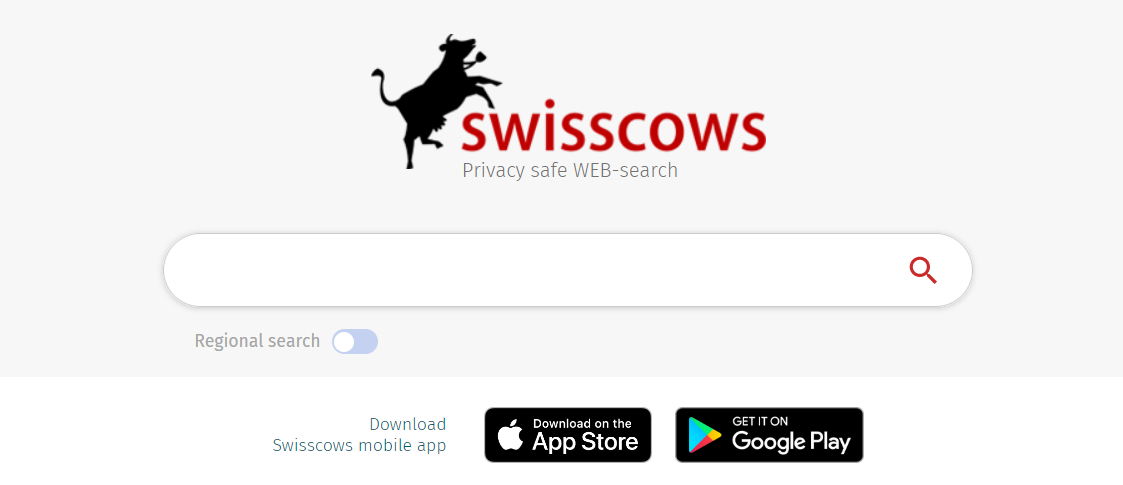
Don’t be fooled by its silly name. This search engine takes your privacy seriously. As you may have guessed, Swisscows is a Swiss search engine with a simple motto: no data collection. It does not employ cookies or any other tracking technologies. It does save some limited anonymous information, but it claims it is only collected to run the service.
Swisscows does have one major advantage, however. It has its own private servers, so your data never passes through third parties. Revenue is generated from banner ads, which like other private search engines are not targeted. However, SwissCows can be a bit too family-focused. Its search results do not include any content that is sexual in nature. What falls under “sexual” is not explained well, and this filter cannot be turned off. If this is a deal-breaker, you might want to look at other engines on our list.
Read Swisscows’ full privacy policy here.
5. Ecosia
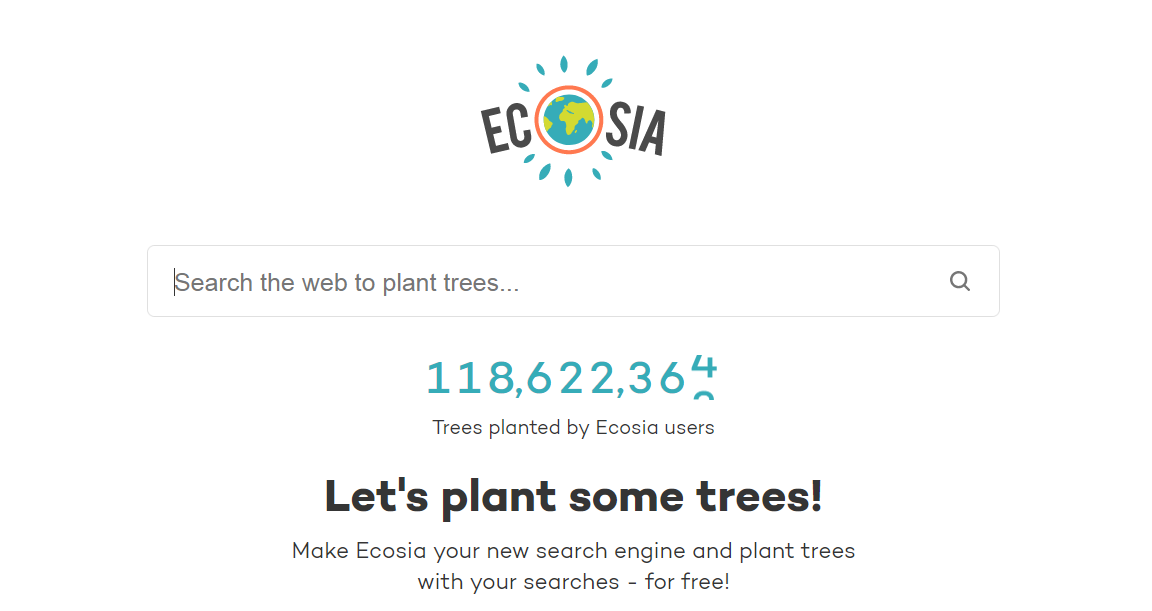
If you want to support a good cause, you should consider Ecosia. Your searches on this engine help plant trees in deforested areas, and you get to enjoy a relatively private experience as well. Ecosia does collect some anonymized data to understand how users interact with the service, but it uses a “self-hosted, secure and encrypted in-house analytics system” to analyze it. It only keeps it for 7 days, and Ecosia promises to never share or sell that data to any third parties. If you don’t feel comfortable with giving up this information, however, you can opt out. Simply enable the “Do Not Track” setting on your browser, and it will collect no analytics.
Read more: The 5 best encrypted private messaging apps for Android
Like other private search engines, Ecosia relies on non-targeted ads for its revenue. It works with ad networks like Bing Ads, but the advertisements are based on your search queries rather than your browsing habits.
Read Ecosia’s full privacy policy here.
6. Qwant
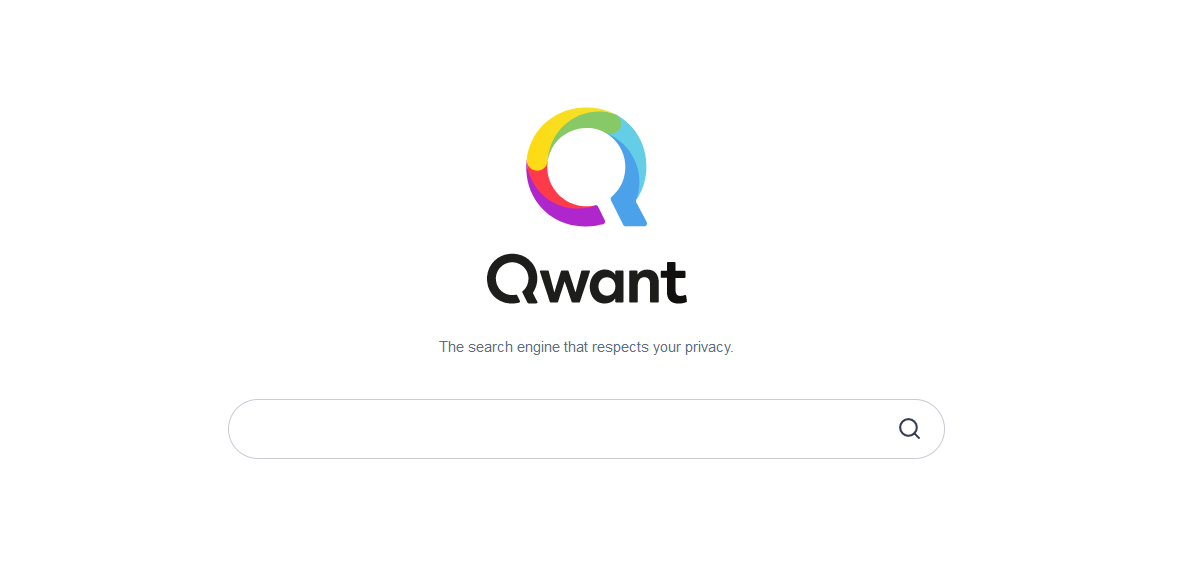
Qwant is another European private search engine. The French platform stands out from the crowd for having its own indexing engine. This means Qwant doesn’t rely on Google or any other company for its results. Like many others on the list, it does not keep your search history or create an individual advertising profile to deliver targeted ads.
However, it does collect more information than comparable services. It then shares some of it with partner Microsoft to provide “contextual advertising based on the keywords.” This can include your browser version, searched keywords, approximate geographical area of the search, and the first three bytes of your IP address. The browser keeps data anonymous. Regardless, privacy-conscious people won’t like it.
Read Qwant’s full privacy policy here.
These are our picks for the best private search engines. If you want to make your online experience even more secure, be sure to check out our other privacy content at the links below.